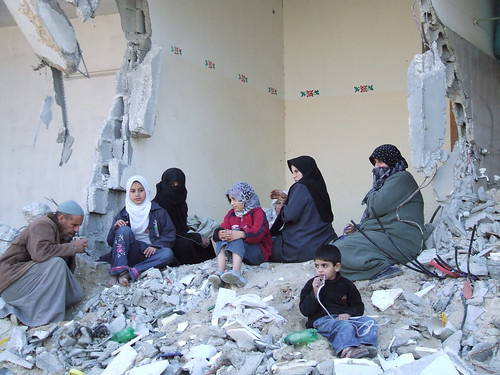As Israel bombs Gaza, huge blasts kill dozens in Jabalia refugee camp
Jabalia #Jabalia

Gaza Strip, Palestinian Territories: As Israel rained bombs on Gaza in its war with Hamas on Tuesday, huge explosions ripped through a crowded Palestinian refugee camp, killing dozens and leaving two giant craters in the densely populated area.
Wails filled the dusty air as volunteers clawed through the concrete blocks and twisted metal in a desperate search for survivors and bodies, with AFP video footage showing at least 47 corpses being recovered.
Gaza’s Hamas-run health ministry reported an initial toll of more than 50 dead, 150 wounded and dozens buried under the rubble, and condemned what it called “a heinous Israeli massacre” at the Jabalia camp.
Israel did not immediately comment on the blasts or the reported toll in Jabalia, which is located in the territory’s north outside Gaza City, an area where ground battles have raged nearby and Israel has told Palestinians to flee.
Israel launched its most intense military campaign ever on Gaza after suffering the bloodiest attack in its history when Hamas gunmen on October 7 killed some 1,400 people in a brutal cross-border raid, according to Israeli officials.
One refugee camp resident, Ragheb Aqal, 41, likened the explosion to “an earthquake” and spoke of his horror at seeing “homes buried under the rubble and body parts and martyrs and wounded in huge numbers”.
The carnage came amid international warnings about the spiralling bloodshed and mounting humanitarian crisis in Gaza, on a day Israeli troops and Hamas militants had engaged in “fierce battles” in the north.
Israel reported two of its soldiers were killed inside Gaza.
Warplanes kept up a relentless barrage of strikes on Gaza, where the Hamas-run health ministry said – before the Jabalia blasts – that 8,525 people had died, including over 3,500 children.
Israel’s Prime Minister Benjamin Netanyahu has dismissed growing calls for a ceasefire with the Hamas group he has vowed to destroy while also seeking to liberate at least 240 hostages.
“Calls for a ceasefire are a call for Israel to surrender to Hamas, to surrender to terrorism, to surrender to barbarism,” he said late Monday.
Ahmed al-Kahlout, a Gazan living near an Orthodox church cultural centre destroyed in another strike, voiced the growing desperation inside the war-torn, crowded and besieged coastal territory.
“We want to live like any other people in this world, to live quietly,” he said.
“We don’t know what to do. The least they can do is give us a truce, give us three hours, a temporary truce or a ceasefire.”
The humanitarian toll has sparked global concern, with aid groups and the United Nations warning time is running out for many of the territory’s 2.4 million people denied access to food, water, fuel and medicine.
“Gaza has become a graveyard for thousands of children. It’s a living hell for everyone else,” said children’s aid agency UNICEF, urging an “immediate humanitarian ceasefire”.
Surgeons are conducting amputations on hospital floors without anaesthetic, and children are forced to drink salty water, said Jean-Francois Corty, vice-president of Medecins du Monde, which has 20 staff on the ground.
Israel has accused Hamas of using hospitals as military headquarters and civilians as “human shields” – charges the group dismisses as “baseless” propaganda.
At a funeral in southern Gaza, tearful mourners cradled the bodies of relatives wrapped in white shrouds before burying them with their bare hands.
“We ask the world to show sympathy for the children to stop these massacres,” Yusef Hijazi, the grandfather of one victim, told AFP.
As even Israel’s staunchest allies voiced concern about the humanitarian crisis, the UN agency for Palestinian refugees UNRWA said there was not nearly enough aid to meet the “unprecedented” needs.
“When an eight-year-old tells you that she doesn’t want to die, it’s hard not to feel helpless,” said UN humanitarian chief Martin Griffiths.
Hisham Adwan, Gaza director of the Rafah crossing with Egypt where some aid has been allowed in, said 36 trucks had been waiting there since the previous day.
“I feel that it’s extremely slow and there’s disruption to UNRWA’s work, and we don’t know why,” he said.
Israel said it is inspecting cargo to make sure weapons are not being smuggled in, and monitoring to guarantee Hamas does not seize the supplies.